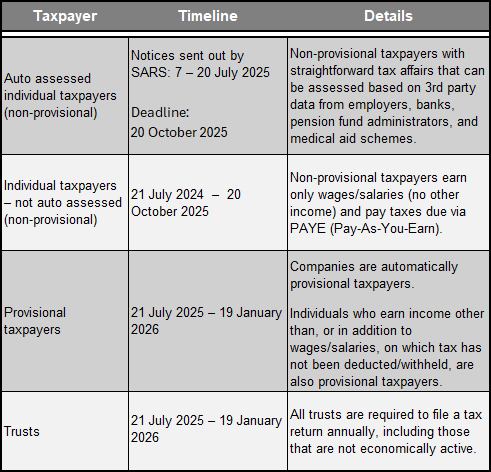Company Directors Take Note: Complying with Your Duties is a Big Deal

“A director must… act in good faith and for a proper purpose; in the best interests of the company; and with the degree of care, skill and diligence that may reasonably be expected…” (Companies Act of 2008)
The first Guideline for 2025 issued by the CIPC (Companies and Intellectual Property Commission) aimed to “sensitise directors on the consequences for non-compliance with their duties to a company.”
Here’s a quick overview of these duties and what could happen if directors don’t comply.
What are the duties of directors?
A director must exercise the powers and perform the functions of a director:
- In good faith and for proper purpose
- In the best interest of the company
- Without using the position to knowingly cause harm to the company
- With the degree of care, skill and diligence that may reasonably be expected of him/her
This means that directors should carefully understand the provisions of the Companies Act that relate to the governance of companies, including, but not limited to:
- Section 75: Directors’ personal financial interests
- Section 76: Standards of directors’ conduct
- Section 77: Liability of directors and prescribed officers
- Section 78: Indemnification and directors’ insurance
- Section 213: Breach of confidence
- Section 214: False statements, reckless conduct and non-compliance
- Section 215: Hindering administration of the Act
Recent amendments
In the last few months, amendments to the Companies Act have introduced significant new changes that have further increased the responsibility and risk that directors shoulder.
Focusing on accountability, transparency, and alignment with international governance standards, the changes include stricter fiduciary duties to prioritise company and stakeholder interests, mandatory transparency in director appointments, and new director criteria disqualifying individuals with a record of insolvency, criminal convictions, or prior misconduct from serving as directors.
Consequences of non-compliance: Civil liability
The Companies Act emphasises that a director of a company in his/her personal capacity may incur civil liability for loss or damage incurred by the company due to the director:
- Acting on behalf of the company without the necessary authority
- Trading recklessly or under insolvent circumstances
- Being a party to an act or omission by a company calculated to defraud
- Being a party to false and misleading financial statements
- Being a party to a prospectus or written statement that contains an untrue statement
- Failing to vote against an unauthorised or inconsistent provision of the Companies Act during a meeting or decision-making process
In a recent High Court case, the court found that directors of a property fund had grossly abused their positions and engaged in reckless conduct that severely harmed the company. The judge declared these directors delinquent and ordered them to compensate the fund for losses incurred due to their actions, including the costs of forensic investigation and reputational harm.
A delinquency declaration can also result in a ban from holding directorships for a specified period or even permanently, as it did for SAA’s Chairperson Duduzile Myeni.
Consequences of non-compliance: Criminal liability
A director may be also held criminally liable in his/her personal capacity in terms of various sections of the Act for:
- Disclosing confidential information concerning the affairs of any person obtained in carrying out any function in terms of the Companies Act
- Falsification of the company’s accounting records
- Trading recklessly or under insolvent circumstances
- Providing false and misleading information
- Being party to an act or omission by a company that is calculated to defraud
- Being party to a prospectus or written statement that contains an untrue statement
- Failing to satisfy a compliance notice
Some of these contraventions may result in a fine or imprisonment for a period not exceeding 10 years (or to both a fine and imprisonment) while others carry lesser (but still nasty) penalties.
Don’t be fooled: Insurance won’t always save you
A “Directors and Officers Liability” policy protects directors against claims arising from decisions made in their official capacity. However, breaches of fiduciary duty, dishonesty, fraud, criminal acts and wilful misconduct are common policy exclusions.
In addition, Section 78 of the Companies Act clearly sets out the requirements of indemnification and directors’ insurance. Even so, the CIPC says that directors of companies often fail to fully appreciate the requirements of this section: there are loads of requirements to qualify for indemnification.










